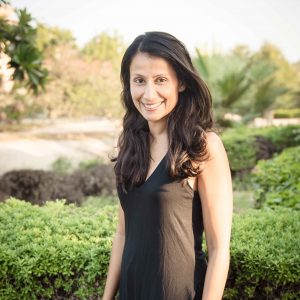011: Executive Director of Surge, Marita Peters

In this episode, we talk to Marita Peters. She is Executive Director of Surge, a non-profit water organisation. She and her team have grown the organisation steadily for the past few years since the branch was established in Dubai and its headquarters in Chicago. She is also a budding environmental activist that helps organizes community events like beach clean-ups, teaching at her children’s schools eco-club and for 30 days she participated with me in the waste me not challenge
During this episode, we take a look at the importance of water. How access to clean water and sanitation can help many young girls to stay in school. We also look at the water footprint and how everything we eat, drink or use, wear, buy, sell and eat takes water to make.
Episode Highlights
[01:42] How did your journey start?
[03:06] Changing the world one drop at a time or we also say it takes one ripple to start the wave of change.
[04:24] The fresh water that you speak about is actually the same water that forms part of the water cycle. We are drinking the water that the dinosaurs drank.
[04:39] The earth is a natural filter and what we are doing today with the industrial pollution and with all of the chemicals that we see in our water sources we are contaminating that finite fresh water source that we have.
[05:21] It is woman and girls that bear the burden of the task of fetching water for their families.
[05:32] What Surge endeavours to do is we work on water access and water purification, which are the two main points when trying to bring clean safe water to remote communities.
[06:17] A lot of times there are closer water sources but they just have broken and they just don’t have the means to fix them.
[06:38] We involve the community leaders, establish a water user comity so that long after the physical build or the repair work is done the community needs to understand and value the work that has been done and be able to maintain and keep up that water source.
[07:34] The attendance rates are picking up because now children aren’t having to go back home to use the bathroom and then never coming back.
[09:58] What is a water footprint you say well, it is simply is not just the direct water that you are aware of, the water that you consume, through cooking, bathing, drinking but also all the indirect water. The water that it takes to grow your food, not just the water in your coffee but the water that it took to grow the coffee beans and to process the coffee beans into ground coffee.
[11:04] We feel that only once you are aware of it can you start to make change in your daily life to your habits.
[11:36] An apple is 70 litres of water.
[12:04] A hamburger, on the other hand, is 2400 litres of water.
[12:52] The story goes the same with your clothes, your mobile phone, with electronics, with all material goods there is water in the process of pretty much everything.
[14:23] There are actually many water footprint calculators online.
[14:42] Sitting here in the UAE, we are number three globally on the highest per capita usage of water. Sitting in at 550 litres a day.
[15:06] Today Surge is active in four countries. We work in Uganda, the Philippines, Haiti and the Dominican Republic.
[15:25] March 22 annually is world water day so as Surge we always like to mark this day. For the last two years, we have hosted free public events at The Sustainable City.
Final Five
1.What is one social media platform that you follow?
2.What is your hope for mama earth going forward?
I guess my big hope is that the next generation, our children, really grow up in harmony with the earth and understand the importance of living in harmony with her and keep her at their forefront.
3.What advise can you give our crazy birds this week to help out mama earth?
Pick one thing that you would like to change and then just stick with that and see how that makes you feel and ones you got the hang of that automatically it will lead you to the next.
4.What is one sustainability fact that you like to use in a room with people not yet on a sustainability journey?
When you think of a typical plastic bottle of water, what we call a single-use bottle. It takes almost three times the amount of water to make the bottle than the water you consume inside it.
5.Where can people find you?
Key Take Away
“What is a water footprint you say well, it is simply is not just the direct water that you are aware of, the water that you consume, through cooking, bathing, drinking but also all the indirect water. The water that it takes to grow your food, not just the water in your coffee but the water that it took to grow the coffee beans and to process the coffee beans into ground coffee.”
Every single thing has some sort of water footprint, therefore you use more water daily than just the pure clean water that you drink. Finding out what your own water footprint is can be a real shocking discovery, but this allows us to make better choices to reduce our water footprint. Instead of grabbing a burger with a water footprint of 2400 litres we could maybe have an apple that only have a water footprint of 70 litres of water. It is little changes like this that will indeed make a big difference.
Subscribe to Mama Earth Talk

